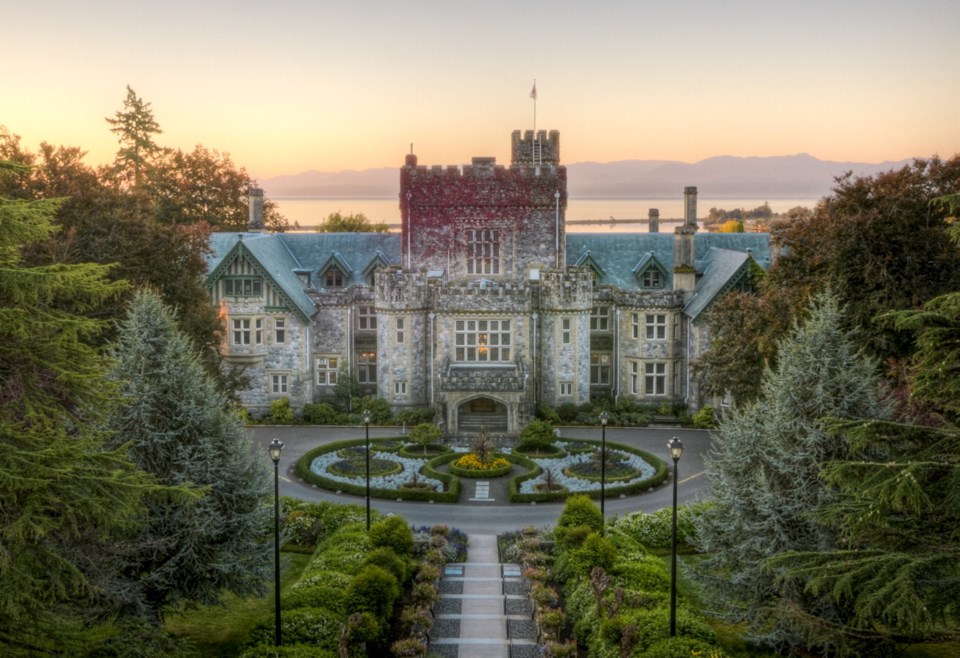Thomas Homer-Dixon studies the complexity of things. It’s what led the professor to write big-brain books like The Ingenuity Gap: How We Can Solve Problems of the Future and The Upside of Down: Catastrophe, Creativity and the Renewal of Civilization.
Here’s how Homer-Dixon’s website describes what he does: “I use complexity science to examine threats to global security — especially economic instability, environmental stress, ideological polarization, and mass violence — and how people, organizations and societies can respond to these threats.”
And now, just in time for the pandemic, the 64-year-old has come home to Victoria to launch a new institute at Royal Roads University.
Homer-Dixon was introduced Monday as executive director of the brand-new Cascade Institute, whose ambitious goal will be to look into the future for ways to guide policy-makers through crises like the one that has us simultaneously hiding under the bed and banging pots and pans at 7 p.m. each night.
He arrived from the University of Waterloo, painting a picture of the future that, while sobering, was not devoid of hope. In fact, the whole point of what he is doing is to identify those “intervention points” where it will be possible for leaders to step in and steer the avalanche in a better direction.
Homer-Dixon speaks of factors coming together to create “tipping events” in which systems flip simultaneously, leaving us in a new, unfamiliar state. The collapse of the Newfoundland cod fishery was one such tipping event, he said, delivering a new reality that, 30 years later, still looks nothing like the old one.
Economies, eco-systems and erstwhile fishing communities were all radically altered. The financial crisis of 2008-09 was another such event, one from which the economy never fully recovered.
And now we have the pandemic, a threat perfectly positioned to exploit not just the interconnectivity but the uniformity of the world.
Interconnectivity means that in an age of international air travel, warm-weather vacations, international trade and just-in-time shipping, a readily transmissible virus like COVID-19 can jump borders without disease carriers even knowing they’re coming home with an extra and unwanted souvenir.
Uniformity — of everything from pharmaceuticals to financial institutions, foods and computer software — means that when one of those things gets kicked in the shins, the entire globe feels the pain.
That can result in what Homer-Dixon describes as a massive cascading domino effect, one in which globally linked systems become susceptible, one shock leading to another. (Monday’s presentation included a somewhat sphincter-tightening graphic of a potential scenario in which a COVID-19 domino falls into the economy, while other tiles — energy, food, social order and, finally, democracy — wait to be toppled, or not.)
Institutions try to deal with these shocks, but are afflicted with what the professor calls “epistemic blindness,” reacting on the basis of what they know about the old reality instead of what can be predicted about the new one.
This is where the Cascade Institute is to come in, using complex-systems research tools to provide decision-makers with a map of the future. Or, at least, that’s the idea.
“We’re not going to promise the moon here,” Homer-Dixon said Monday. They’re using research tools, not magic wands.
There’s also the age-old problem of translating academic research into action. That’s where both Homer-Dixon and university president Philip Steenkamp see Royal Roads as a good fit.
Yes, Homer-Dixon said, the lure of home contributed to his decision to relocate there, but so did the nature of the university itself. It’s a nimble, practical place, Steenkamp said, geared to mid-career professionals who can take what they learn into the real world.
The Cascade Institute, which is expected to have a staff of 20 to 25 within a couple of years, will be part of a network of similar bodies (including those at Potsdam and Oxford universities), where complexity researchers are tackling what they see as humanity’s most critical challenges, including climate change, wealth inequality and social upheaval.
“Our complex social, economic, and ecological systems present humanity with extreme dangers as well as extreme opportunities,” Homer-Dixon said. “Finding the opportunities to intervene and put us all on a more positive path is what the institute is all about.”
High-minded stuff, but brought down to ground level by another of Monday’s graphics, one that offered a choice between a population acting in unison while fighting COVID-19, and gun-toting anti-lockdown protesters in Michigan.
“Which way will we tip?” Homer-Dixon asked.



